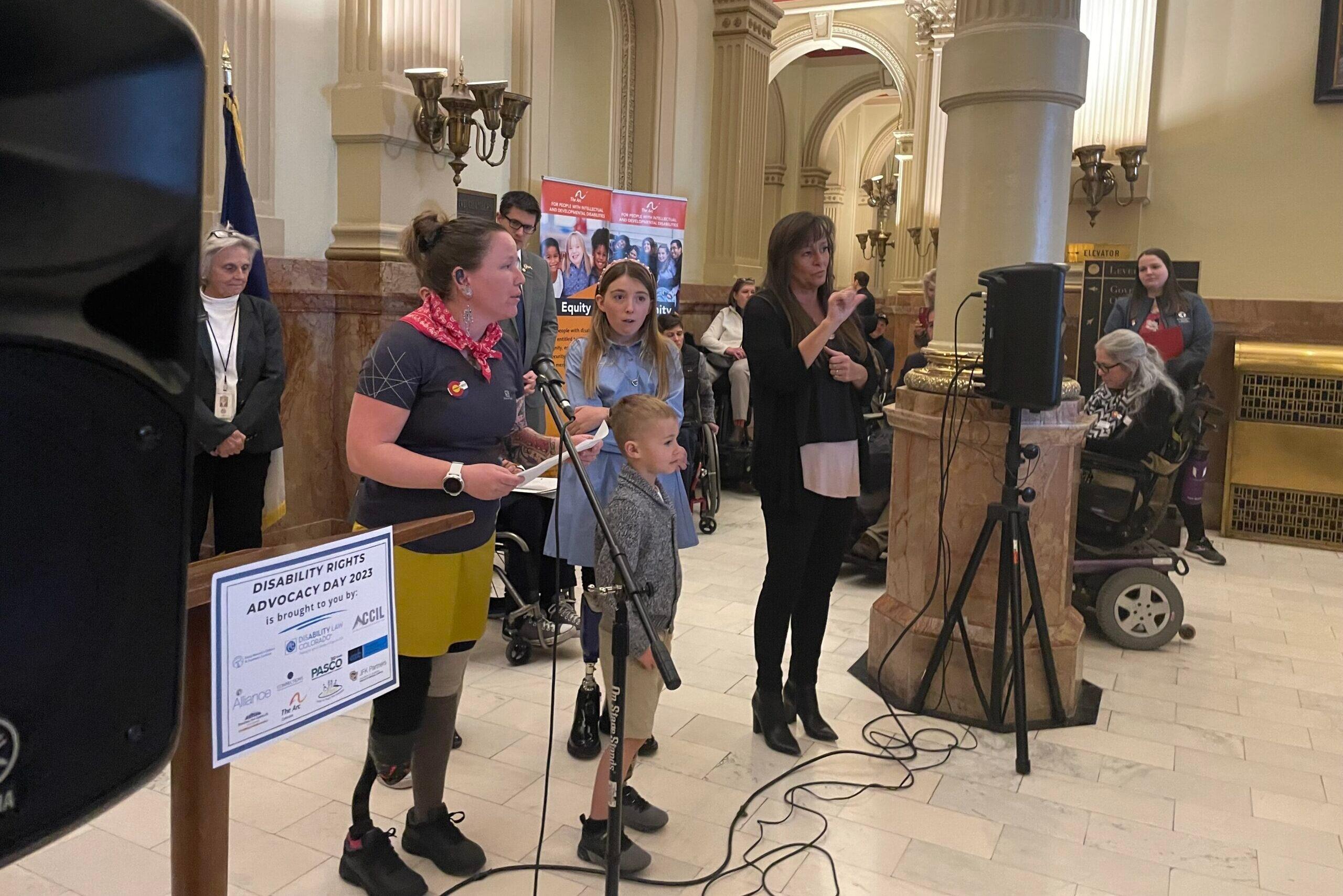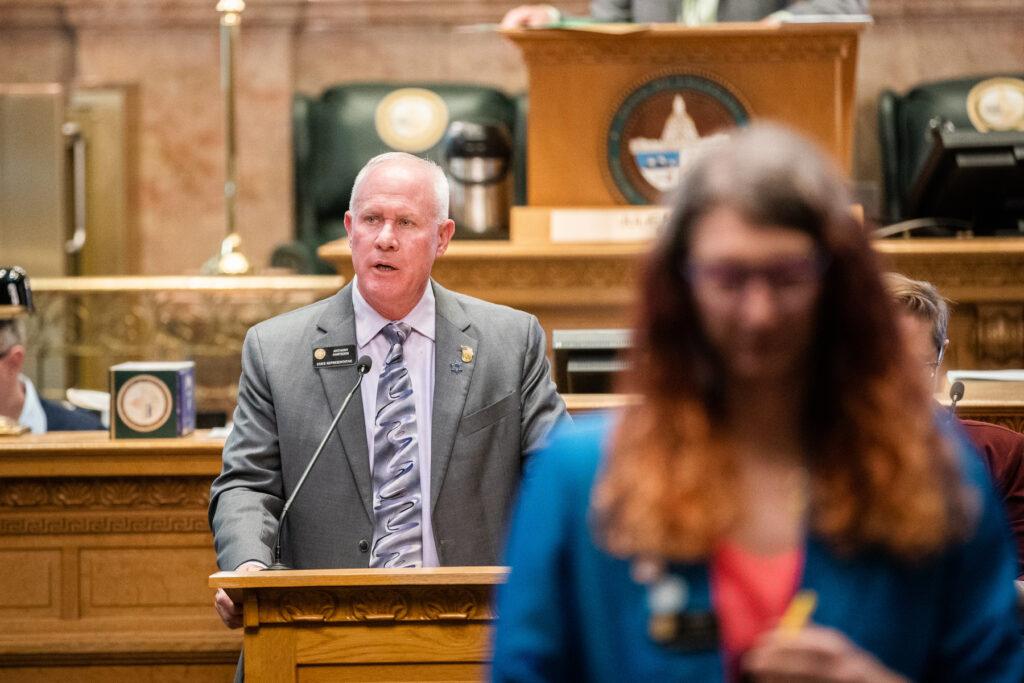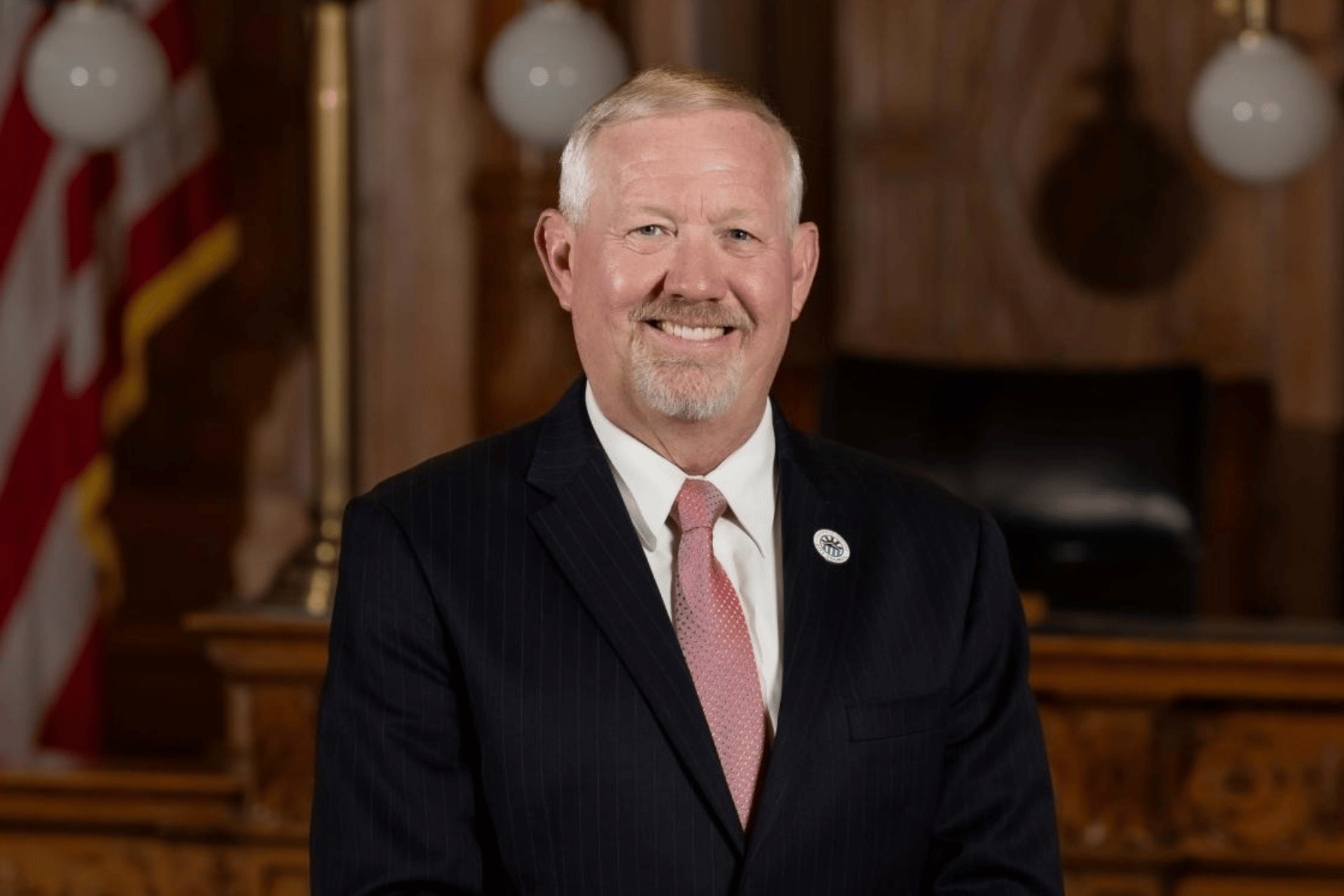
A bipartisan bill to increase recreational opportunities for Coloradans who use prosthetic devices was not controversial when it cleared the statehouse two years ago with near-unanimous approval. But its implementation since then has been anything but simple and has left backers frustrated.
The law was supposed to go fully into effect at the start of this year, but is still in limbo with no clear sense yet when that might change, or how broadly it will be applied.
“This is extremely disappointing. You have families that are depending on this, families with disabilities and folks with disabilities that are constantly being denied basic access,” said former Democratic Rep. David Ortiz, Colorado’s first state lawmaker to use a wheelchair and the bill’s main sponsor.
The law requires insurance companies to cover an additional prosthetic device for sports and recreational activities if a physician determines it is medically necessary. For instance, medical experts say prosthetics designed for walking can be unsafe for running.
“It's the equivalent of showing up to a track meet and running in flip flops when your fellow competitors are showing up in spikes,” explained Shaneis Malouff, a licensed pediatric medical provider and advocate for policies like this one.
Malouff added that studies show that wearing the wrong prosthetic device causes excessive deterioration of joints and early onset arthritis, “and when you're looking at this little kid who just wants to play with his friends on the playground… that's not fair.”
But those additional prosthetics can cost around $13,000, out of reach for many people, especially families whose growing children may need a new device each year. Ortiz said it can mean that some people living with disabilities aren’t able to participate in sports at all.

“The reality for these kids with limb loss is they're trying to grow up living an active normal life so they can be healthy adults and you're denying them that basic human right,” he said.
The implementation hangup has never been about the policy, which has broad support, but about who will pay for it.
State blames feds for the holdup
The question is how Colorado’s law interacts with the Affordable Care Act.
The ACA has a list of things insurers are required to cover under the individual and small group plans offered on state healthcare marketplaces. In a letter to federal regulators after the bill passed, Colorado’s Division of Insurance made the case that athletic prosthetics are covered by that list as essential medical care.
But late last year, two weeks before the bill was set to go into effect, the state informed advocates that the federal government saw things differently. The Division of Insurance said it had been told the prosthetics requirement counted as a new mandate on insurers, which means if Colorado applied the law to ACA-subsidized plans, the state would have to pay for any increase in the overall cost of insurance.
Lawmakers anticipated that potential ruling from the federal government and put language in the bill saying, in that case, Colorado simply wouldn’t apply the requirement to individual and small group plans. Advocates say taking that route leaves out about 60 percent of the people with limb loss who would otherwise benefit.
Bill supporters upset with ‘bureaucratic garbage’
However, as advocates started pushing for more information about the federal government’s decision, how the bill would be implemented, and why it has been delayed, the story got more complicated.
The Colorado Division of Insurance said that the news about the ACA decision came only in a phone call with the federal Department of Health and Human Services, not any official documentation. And then, in early January, DOI produced a subsequent email, in which federal officials reversed course and said the state does have the power to add the recreational prosthetics requirement to individual and small group plans, without picking up any added cost. According to the email, it would be up to the state to decide whether to do that.
Advocates for the policy — including individuals with amputations, physicians and the bill’s sponsors — recently held a Zoom meeting with the Colorado Division of Insurance to push for more clarity on the situation and when the law might go into effect.
“I know you were frustrated. I get the frustration completely about the way that the operation of the state law in conjunction with the ACA requirements played out,” Insurance Commissioner Michael Conway told participants.
The meeting became tense at times, as some advocates questioned why it took so long to get permission from the federal government, and why the initial federal determination was never in writing.
“What I've seen in this process has been very disappointing,” said Ortiz.
For disability rights advocates it’s been especially frustrating because they say they don’t understand the reason for the continued delay.
“There's a ton of confusion, as you might imagine, around, is this live? Is it not? Who does it affect?” said Angela Montgomery, president of the Rocky Mountain Orthotic & Prosthetic Coalition.
Republican Rep. Anthony Hartsook, another of the bill’s sponsors, said he wants everyone from veterans to children with limb loss to be active and lead healthy lives.
“At some point, I want to cut through this bureaucratic garbage and get to the steps that we need to do to achieve that for these kids,” Hartsook told the state officials on the call. “What's our timeline and what's our next series of steps?”

Conway said in light of the new information from the federal government that Colorado can require insurance coverage for recreational prosthetics, the state would issue a new policy recommendation on the lay of the land by mid-February. He said that the proposal would then need to go out for public feedback before it could be implemented.
”We very well may be having a conversation with insurers in the near future that they've got to implement this law,” said Conway.
That answer didn’t satisfy some advocates who argue the state has already gathered enough feedback and should be able to launch the prosthetic requirement without new input.
“The federal government said it's your decision, why do you feel like you have to revisit that decision…You made a decision, people should be getting covered. Why are we delaying that?” said Ortiz.
The state pushed back and said it was just following the normal process of how it informs the insurance industry of any number of things.
Conway warned that the biggest uncertainty now is any potential ACA changes under the new Trump administration.
“I wish I knew how that wild card will play out.”
Gov. Polis skeptical of expanding insurance requirements
It’s not easy to get a new policy or procedure covered under health insurance in Colorado.
Reducing health care costs has been a top priority for Gov. Jared Polis during both his first and second terms. In 2020 he warned lawmakers he is not willing to approve any new mandates for health insurance coverage, as he worries they will drive up costs.
“Additional mandates, which may, by themselves, be important advancements in expanding coverage or reducing long-term costs, often do not meet the second goal of lowering health insurance costs for people today,” Polis wrote, “and can have the unintended consequence of making coverage less accessible to those who need it most.”
That warning came in a letter Polis attached a bill to require insurance coverage for IVF procedures. Polis signed the legislation, but made it clear he didn’t want to see similar new mandates arrive on his desk.
As a part of the state’s cautious approach to expanding insurance coverage requirements, Colorado law requires an actuarial review of the cost of any new proposals. The analysis for the recreational prosthetics law estimated premiums could increase somewhere 1 to 8 cents per month.
And despite the implementation delay and confusion, Commissioner Conway tried to assure backers of the proposal that it is likely go into effect.
“I think we're going to get there. It's just a matter of trying to make sure that we're following both the state law requirements and the federal requirements, and those are components that we're working through,” he said.









